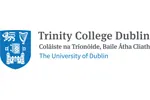About Psychology, BA (Hons) - at Trinity College Dublin
Psychology can be studied as a single honor degree or as one subject in a two-subject moderatorship (TSM) programme. In the former, psychology is studied almost exclusively for four years. In the latter, psychology is read with one other subject equally for the first three years and in the fourth year the student drops one subject and studies the other exclusively.
OverviewThe two-subject moderatorship course is identical with certain sections of the single honor course. However, the programme of study of psychology is not so extensive for TSM students.
Each academic year requires a minimum of 1,200 hours of student time. During lecture term, approximately 12 hours per week are spent in supervised study such as lectures, practicals and tutorials.
Psychology degree and professional qualificationsApart from pedagogic goals, both courses are designed to meet the requirements of the professional psychological body (the Psychological Society of Ireland). The single honor degree and the TSM degree (where the student majors in psychology) both confer eligibility for graduate membership of the Psychological Society of Ireland and the British Psychological Society. They also meet the requirements for the graduate basis for registration of the British Psychological Society. TSM students for whom psychology is the minor subject are not eligible for graduate membership of either Society. Progression into the profession of psychology, however, requires further training at postgraduate level. For clinical psychology this typically lasts for 3 years, for counselling and health psychology 2 years and for occupational psychology 1 year.
What is psychology?Psychology is the scientific study of human behaviour and mental processes. Although classified as an arts course, psychology has many of the features of a science course - practical work, statistical description and analysis of data and courses on the underlying physiology of the human brain, for instance. These are in addition to the more familiar psychological topics such as human development, perception, learning, motivation, cognitive processes, individual differences and social psychology.
Psychology should not be confused with psychoanalysis, which is a particular approach to the human mind developed originally by Freud, and which has its own method of psychotherapy. Psychoanalysis is only one part of the history of the huge field of psychology, and the study of psychology at Trinity is not designed to involve you in self-exploration or personal adjustment.
Is this the right course for me?Psychology is a rigorous, fascinating and demanding field of the life sciences. If you are interested in the factors influencing human thinking, feeling and behaving, as individuals and in groups, you will enjoy this course.
Course ContentThe course is designed to develop a wide knowledge of the concepts, principles, theories and research methods of contemporary psychology; to develop skills of analysis and synthesis, research design, statistical description and evaluation, problem-solving and computer use; to provide practice in the design, execution, reporting and assessment of research and to develop competence in group work, communication and presentation skills and self-assessment. This preparation is designed to cultivate a high level of competence in scholarship and research, enabling the successful graduate to proceed directly to advanced postgraduate work, professional training or a productive career.


